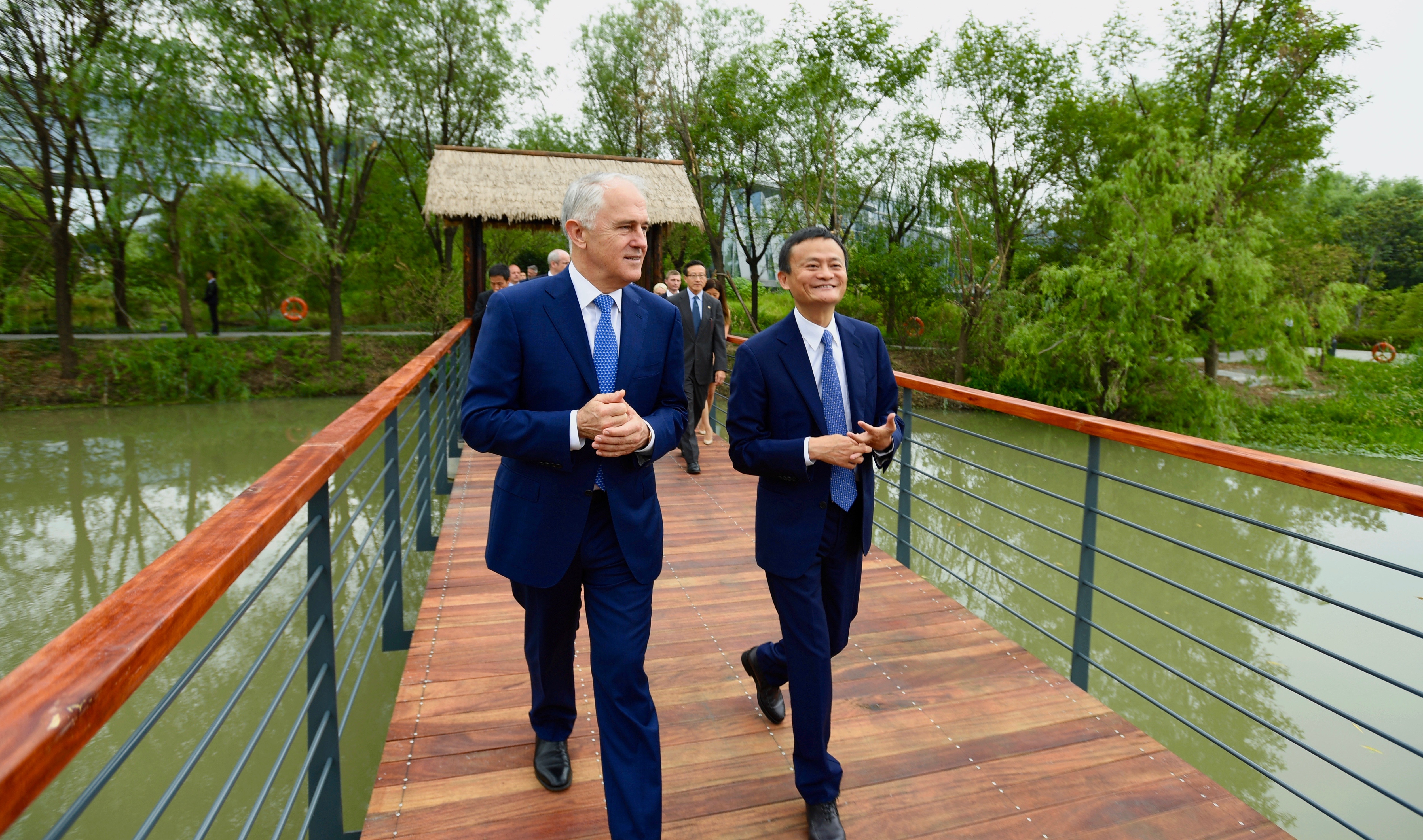
Alibaba Group on Tuesday signed a memorandum of understanding (MOU) with the Australian Trade and Investment Commission that will help to increase opportunities for Australian goods to reach Chinese consumers through the Chinese e-commerce giant’s online marketplaces.
The strategic partnership, which was announced during a visit to Alibaba headquarters in Hangzhou, China, by Australian Prime Minister Malcolm Turnbull, will provide dedicated services for Australian products on Alibaba’s platforms and will leverage digital content to help Australian companies increase their brand recognition among Chinese consumers.
“The next chapter of trade between China and Australia will require closer cooperation and this agreement provides a new framework to ensure more businesses, especially small and medium enterprises, can benefit through the partnership between Austrade and Alibaba,” said Alibaba Executive Chairman Jack Ma in a statement.
Speaking during his visit, Turnbull said Alibaba “enables the smallest businesses, the mom-and-dad businesses, in the regional part of Australia to have access to the biggest part of the world, something that hitherto only a very large company with enormous resources, with enormous representation would be able to do.” Also, the fact that Alibaba’s services are available via cloud computing “reduces the cost of business and levels the playing field between the big company and the small company,” he said.
As part of the MOU, Alibaba’s business-to-consumer shopping site Tmall.com will launch an annual “Australian Fresh Food Week” sales promotion and education event to highlight Australian food and beverage companies. Alibaba will also launch a dedicated channel on Chinese online video hub Youku.com, which is owned by the company, to further promote Australian produce and grow brand awareness in China. In addition to working with large Australian companies, the MOU singles out what Alibaba called “first-time exporters,” particularly SMEs, to help them gain access to the Chinese market.
Currently more than 1,300 Australian brands sell through Tmall and Tmall Global, Alibaba’s cross-border e-commerce platform, including retailer Woolworths, vitamins and supplements supplier Chemist Warehouse and skin-care brand Jurlique. Health supplements and beauty products,in addition to food and beverage and baby and maternity items, are the most popular Australian goodsamong Chinese consumers. But the new MOU would allow for an expansion of this list, Senior Trade Commissioner Michael Clifton said in a release from the Australian Trade and Investment Commission (Austrade).
“This partnership also opens the door to future cooperation in some of Australia’s priority industries, including emerging digital service delivery areas such as e-health, financial services, sporting event management and assisting innovative startup companies,” Clifton said.
Alibaba has dedicated significant resources to growing its business in Australia as part of its globalization strategy, and the company will open its first office in the country, in Melbourne, later this year. In 2014, Alibaba entered into a three-way collaboration with online payments provider Alipay and Australia Post to reach online shoppers in China and Australia. The deal allowed Australia Post to set up a store on Tmall Global that would help Australian SMEs sell their products to China.
Alipay, which is owned by Alibaba affiliate company Ant Financial, also is currently available to Chinese tourists in Australia at 250 locations. Meanwhile, Alibaba’s online travel site, Alitrip, has partnered with both Tourism Australia and Tourism Western Australia to increase the products and services available to Chinese travellers headed Down Under.
Turnbull’s stop at Alibaba’s Xixi headquarters was the last of about a half dozen delegations to visit the company during the G20 summit, which was held in Hangzhou over the weekend. Canadian Prime Minister Justin Trudeau and Matteo Renzi, prime minister of Italy, were among the heads of state to make stops at Alibaba.




